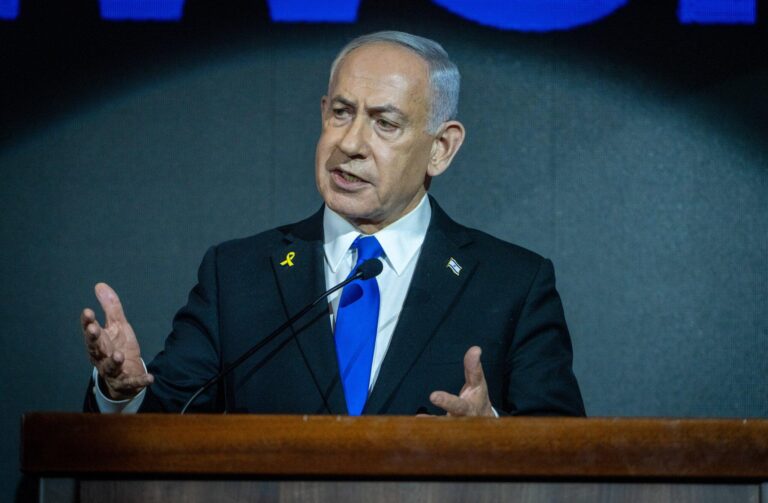Israeli Prime Minister Benjamin Netanyahu has sharply criticized Australian Prime Minister Anthony Albanese, branding him a “weak politician” who has betrayed Israel and abandoned the interests of Australian Jews. The comments come amid escalating tensions between the two leaders over diplomatic and policy disagreements. Netanyahu’s remarks, reported by The Times of Israel, highlight a rare public rift that underscores the complexities of Israel’s relationships with key allies in the international arena.
Netanyahu Criticizes Australian Prime Minister Over Diplomatic Shift
Benjamin Netanyahu launched a scathing rebuke at the Australian Prime Minister following Canberra’s recent diplomatic pivot, describing the move as a betrayal that undermines longstanding ties between the two nations. Netanyahu accused the leader of displaying weakness in the face of international pressure, further claiming that the Australian Jews were left feeling abandoned amid the policy reversal.
The criticism highlights a growing rift in bilateral relations, sparked by Australia’s decision to alter its stance on Middle East diplomacy. Key points in Netanyahu’s remarks included:
- Accusation of abandoning a historic ally in Israel
- Claims of political capitulation to external demands
- Concerns over implications for Jewish communities in Australia
| Aspect | Netanyahu’s Allegation | Australian PM’s Position |
|---|---|---|
| Diplomatic Shift | Viewed as betrayal | Characterized as strategic realignment |
| Relationship with Israel | Damaged trust | Maintains partnership but with new approach |
| Impact on Jewish Community | Leaves community vulnerable | Claims commitment to support |
Implications for Israel-Australia Relations Amidst Political Tensions
The recent exchange of sharp accusations between Israeli Prime Minister Benjamin Netanyahu and the Australian government has sparked concerns over the future trajectory of bilateral ties. Netanyahu’s characterization of Australia’s Prime Minister as a “weak politician” who “betrayed Israel” not only strains diplomatic decorum but also threatens the traditionally robust alliance shared by the two nations. This rhetoric arrives at a time when geopolitical alignments in the Middle East and the Pacific are increasingly fluid, potentially complicating cooperation on security, trade, and strategic initiatives.
Analysts highlight several immediate implications within the realms of diplomacy and community relations:
- Diplomatic Engagement: Possible chilling of official dialogues and reduced high-level visits, leading to delays in cooperative projects.
- Jewish-Australian Community: Heightened anxiety and polarization among Jewish Australians who have long viewed Australia as a supportive ally.
- Trade Impacts: Risk of subtle economic repercussions as political tensions often bleed into commercial sectors.
As both nations navigate these sensitive waters, the possibility of strategic recalibration remains. The table below summarizes the potential areas affected by this diplomatic fallout:
| Area | Possible Effect | Time Frame | ||||||||||||||||||||||||||
|---|---|---|---|---|---|---|---|---|---|---|---|---|---|---|---|---|---|---|---|---|---|---|---|---|---|---|---|---|
| Diplomatic Relations | Cooling-off of bilateral talks | Short – Medium term | ||||||||||||||||||||||||||
| Economic Cooperation | Potential trade hesitations |
| Area | Possible Effect | Time Frame |
|---|---|---|
| Diplomatic Relations | Cooling-off of bilateral talks | Short – Medium term |
| Economic Cooperation | Potential trade hesitations | Medium term |
| Community Relations | Increased polarization within communities | Immediate – Short term |
| Security Collaboration | Possible delays in joint initiatives | Short – Medium term |
If you want me to help you with further edits, additions, or another format, just let me know!
Experts Urge Strengthened Dialogue to Support Australian Jewish Community
Amid escalating tensions fueled by controversial remarks from Israeli Prime Minister Benjamin Netanyahu, community leaders and experts are calling for a more robust and transparent dialogue between Australian officials and Jewish communities across the country. They emphasize that despite political disagreements, ensuring the safety and unity of the Australian Jewish population must remain a priority. Key figures highlight concerns that inflammatory rhetoric undermines the trust necessary for collaboration on security, cultural preservation, and combating rising antisemitism.
Key recommendations from experts include:
- Establishing open forums with representatives from both government and Jewish organizations to foster mutual understanding.
- Implementing targeted educational programs addressing the roots of antisemitism in Australian society.
- Enhancing law enforcement cooperation to better protect vulnerable communities.
| Stakeholder | Role | Primary Concern |
|---|---|---|
| Australian Jewish Council | Advocacy & Support | Community Safety |
| Federal Government | Policy Making | National Security |
| Security Experts | Risk Assessment | Threat Prevention |
In Summary
As tensions between Israel and its international allies continue to unfold, Prime Minister Netanyahu’s sharp critique highlights the deepening rift with Australia’s leadership. The allegations of betrayal and abandonment of Australian Jews mark a significant escalation in diplomatic discourse, underscoring the fraught nature of Israel’s foreign relations amid ongoing regional and global challenges. Observers will be watching closely to see how Canberra responds and whether this dispute will impact broader strategic ties between the two nations.




